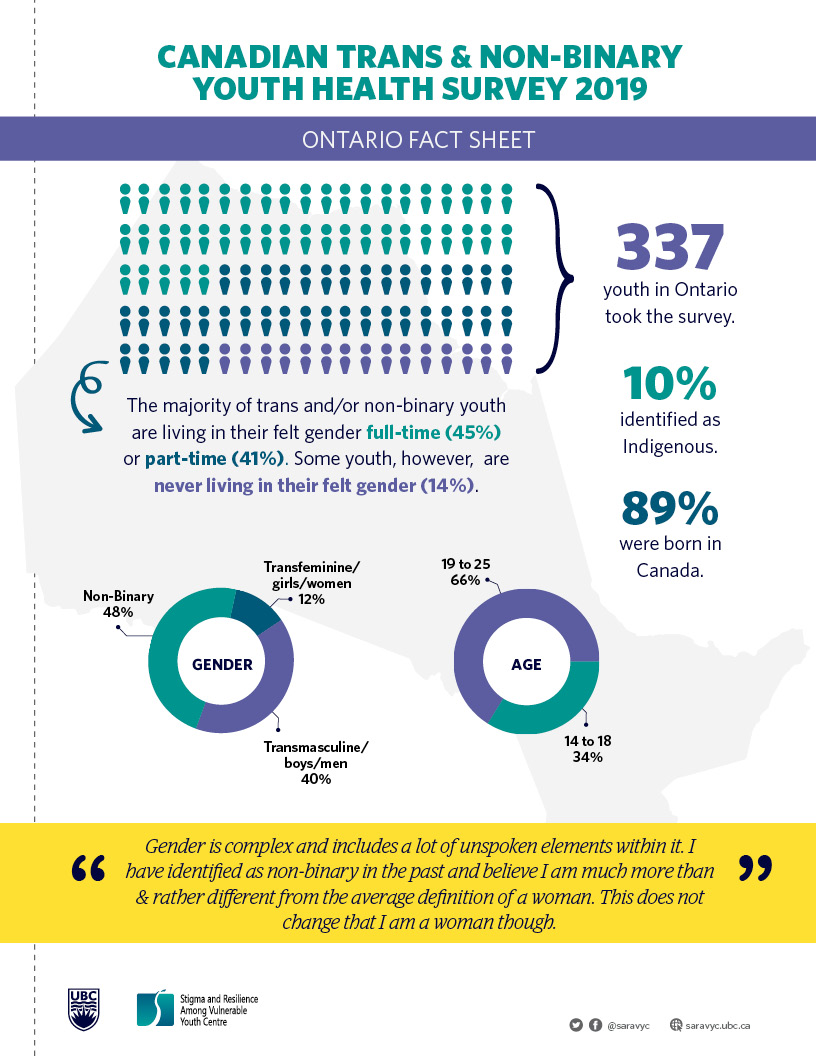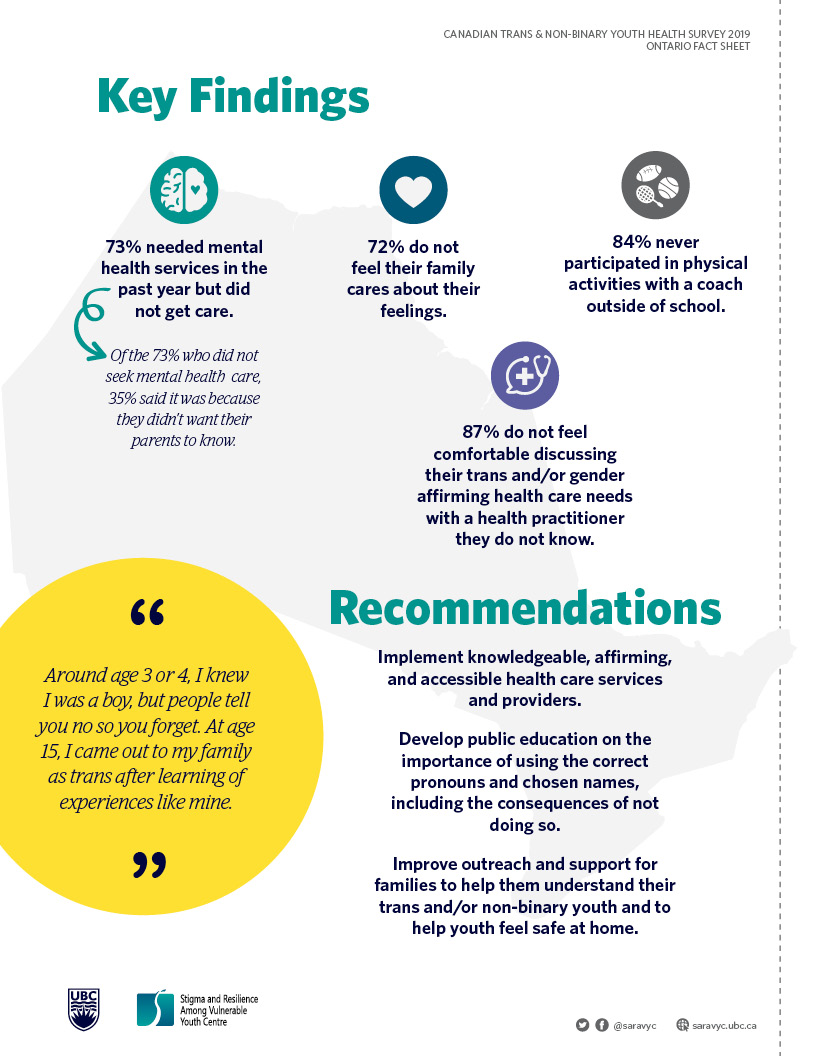Being Safe, Being Me 2019: Results of the Canadian Youth Trans and Non-binary Health Survey is a national study by SARAVYC that builds on a similar survey conducted by SARAVYC in 2014. Similar to the survey in 2014, this survey was available for young people to take in English or French and surveyed a range of topics including gender identity, access to gender-affirming care and physical health.
In 2019, 337 trans and/or non-binary youth in Ontario took the survey. Of the youth in Ontario who took part in the survey, 10% identified as Indigenous and 89% were born in Canada. The majority of trans and/or non-binary youth in Ontario reported that they are living in their felt gender full-time (45%) or part-time (41%). Some youth, however, are never living in their felt gender (14%).
Key findings for youth in Ontario
- 73% needed mental health services in the past year but did not get care
- 72% do not feel their family cares about their feelings
- 84% never participated in physical activities with a coach outside of school
- 87% do not feel comfortable discussing their trans and/or gender affirming health care needs with a health practitioner they do not know
Recommendations for Ontario
- Knowledgeable, affirming and accessing health care services and providers.
- Public education of the importance of using the correct pronouns and chosen names, including the consequences of not doing so.
- Improve outreach and support for families to help them understand their trans and/or non-binary youth and to help youth feel safe at home.



